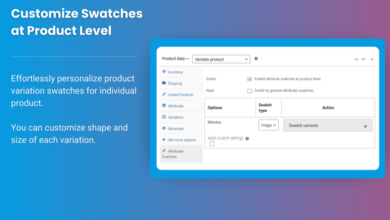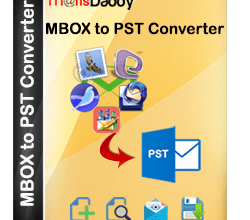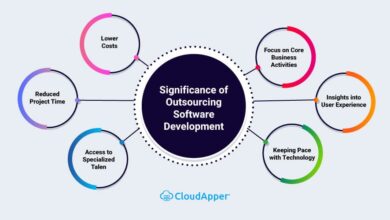Custom Software Development Solutions for the Healthcare Industry

The healthcare industry is increasingly relying on technology to provide efficient, patient-centric care. Custom software development solutions have emerged as a powerful tool to address the unique challenges of the healthcare sector, ranging from patient data management to telemedicine and personalized care. These solutions are designed to meet the specific needs of healthcare providers, enabling them to improve patient outcomes, streamline operations, and ensure regulatory compliance.
In this article, we’ll explore the key benefits of custom software development solutions for the healthcare industry, the critical features to look for, and how these solutions can help healthcare organizations stay ahead in an ever-evolving digital landscape.
1. Why Healthcare Needs Custom Software Development Solutions
The healthcare industry faces several challenges, including managing large volumes of patient data, ensuring patient privacy and security, and complying with complex regulations such as HIPAA. Off-the-shelf software often lacks the flexibility to address these issues effectively. This is where custom software development solutions come in.
Custom solutions allow healthcare organizations to tailor their software to meet specific requirements. Whether it’s integrating with existing systems, enhancing patient data security, or providing telemedicine services, custom software provides a way to create a solution that fits seamlessly into the organization’s workflow.
Key Benefits of Custom Software Development in Healthcare:
- Enhanced Patient Care: Custom software allows healthcare providers to personalize care plans based on patient data, improving diagnosis, treatment, and follow-up care.
- Data Management and Integration: With a customized solution, healthcare providers can easily integrate various systems such as EHR (Electronic Health Records), telemedicine platforms, and billing software, streamlining operations.
- Compliance with Healthcare Regulations: Custom software can be built with the specific regulatory requirements of a country or region in mind, ensuring that the healthcare provider remains compliant with laws such as HIPAA or GDPR.
2. Key Features of Custom Software Development Solutions for Healthcare
To meet the diverse needs of healthcare providers, custom software development solutions should include a variety of essential features. Here are some of the most important ones to consider:
a) Electronic Health Records (EHR) Integration
One of the most critical aspects of modern healthcare is managing and storing patient data securely. A custom software solution can integrate seamlessly with EHR systems, ensuring that healthcare providers have instant access to patient history, lab results, and medication records. This leads to faster decision-making and better patient outcomes.
b) Telemedicine Capabilities
Telemedicine has grown exponentially in recent years, and having custom software that supports virtual consultations is essential. Custom software development solutions allow healthcare providers to create telemedicine platforms that are easy to use, secure, and compliant with privacy laws. This is particularly important for offering remote healthcare services to patients in underserved areas.
c) Appointment Scheduling and Management
Efficient appointment scheduling is key to reducing no-shows and improving patient flow. A custom scheduling system allows for real-time appointment booking, automated reminders, and integration with the provider’s calendar, reducing administrative burdens.
d) Data Security and Privacy
Healthcare organizations handle highly sensitive patient information, making data security a top priority. Custom software development solutions can be designed with encryption, secure login, and audit trails to ensure that patient data remains protected and compliant with regulations like HIPAA.
e) Patient Portals
Empowering patients to manage their own healthcare is increasingly important. Custom software can include patient portals that allow patients to view their medical records, schedule appointments, and communicate with their healthcare providers, all while ensuring that their data is secure.
f) Mobile Health (mHealth) Applications
Mobile apps are becoming more important in healthcare for monitoring patient health and providing instant access to health services. Custom mobile apps can be tailored to specific healthcare needs, such as remote patient monitoring, medication reminders, or fitness tracking.
3. How Custom Software Development Solutions Improve Patient Care
Custom software development solutions can significantly improve patient care by enhancing the accuracy and efficiency of medical processes. Here’s how:
a) Improved Diagnosis and Treatment
Custom software enables healthcare providers to analyze large datasets, including patient history, lab results, and genetic information. This leads to more accurate diagnoses and personalized treatment plans. For example, a custom-built system can use AI and machine learning to predict patient outcomes based on historical data, helping providers make informed decisions quickly.
b) Streamlined Communication Between Healthcare Providers
Custom software can facilitate communication between different healthcare providers, such as doctors, nurses, and pharmacists. This is particularly useful in large hospitals or healthcare systems where multiple providers may be involved in a patient’s care. Streamlined communication helps avoid errors and ensures that all healthcare professionals are on the same page regarding patient care.
c) Faster and More Accurate Billing
Billing in healthcare can be complicated due to insurance claims, co-pays, and varying service costs. Custom software development solutions simplify the billing process by automatically coding procedures, verifying insurance information, and tracking payments. This reduces errors and ensures that healthcare providers are paid in a timely manner.
4. Challenges in Developing Custom Software for Healthcare
While the benefits of custom software development are clear, there are also challenges that healthcare organizations need to consider. Here are some of the most common challenges:
a) Regulatory Compliance
Healthcare is one of the most highly regulated industries in the world. Developers need to ensure that the software complies with local and international regulations such as HIPAA, GDPR, or the Affordable Care Act (ACA). Failure to comply can result in hefty fines and damage to the healthcare provider’s reputation.
b) High Development Costs
Developing custom software can be expensive, especially when it involves advanced features like AI integration, telemedicine, or mHealth applications. However, these costs are often justified by the long-term benefits, including improved efficiency, better patient care, and enhanced security.
c) Data Security Concerns
Healthcare organizations handle a large amount of sensitive data, making them prime targets for cyberattacks. Custom software development solutions must prioritize security features, including encryption, multi-factor authentication, and secure cloud storage.
5. Future Trends in Healthcare Software Development
The future of healthcare lies in technological innovation, and custom software development solutions are at the forefront of this transformation. Here are some trends to watch in 2024 and beyond:
a) AI and Machine Learning
AI and machine learning are revolutionizing healthcare by enabling predictive analytics, personalized medicine, and advanced diagnostics. Custom software that leverages these technologies will allow healthcare providers to deliver better care more efficiently.
b) Blockchain for Data Security
Blockchain technology offers a secure way to store and share patient data, ensuring that it cannot be tampered with. Custom software solutions that incorporate blockchain can enhance data security and improve patient trust.
c) Wearable Health Technology Integration
Wearable devices like smartwatches and fitness trackers are becoming more popular. Custom software that integrates with these devices can provide healthcare providers with real-time health data, improving patient monitoring and care.
Conclusion
Custom software development solutions are essential for healthcare providers looking to improve patient care, streamline operations, and ensure compliance with industry regulations. By investing in tailored software, healthcare organizations can address their unique challenges, enhance security, and remain competitive in a rapidly evolving digital landscape. As technology continues to advance, custom software will play a pivotal role in shaping the future of healthcare, making it more efficient, accessible, and patient-focused.





